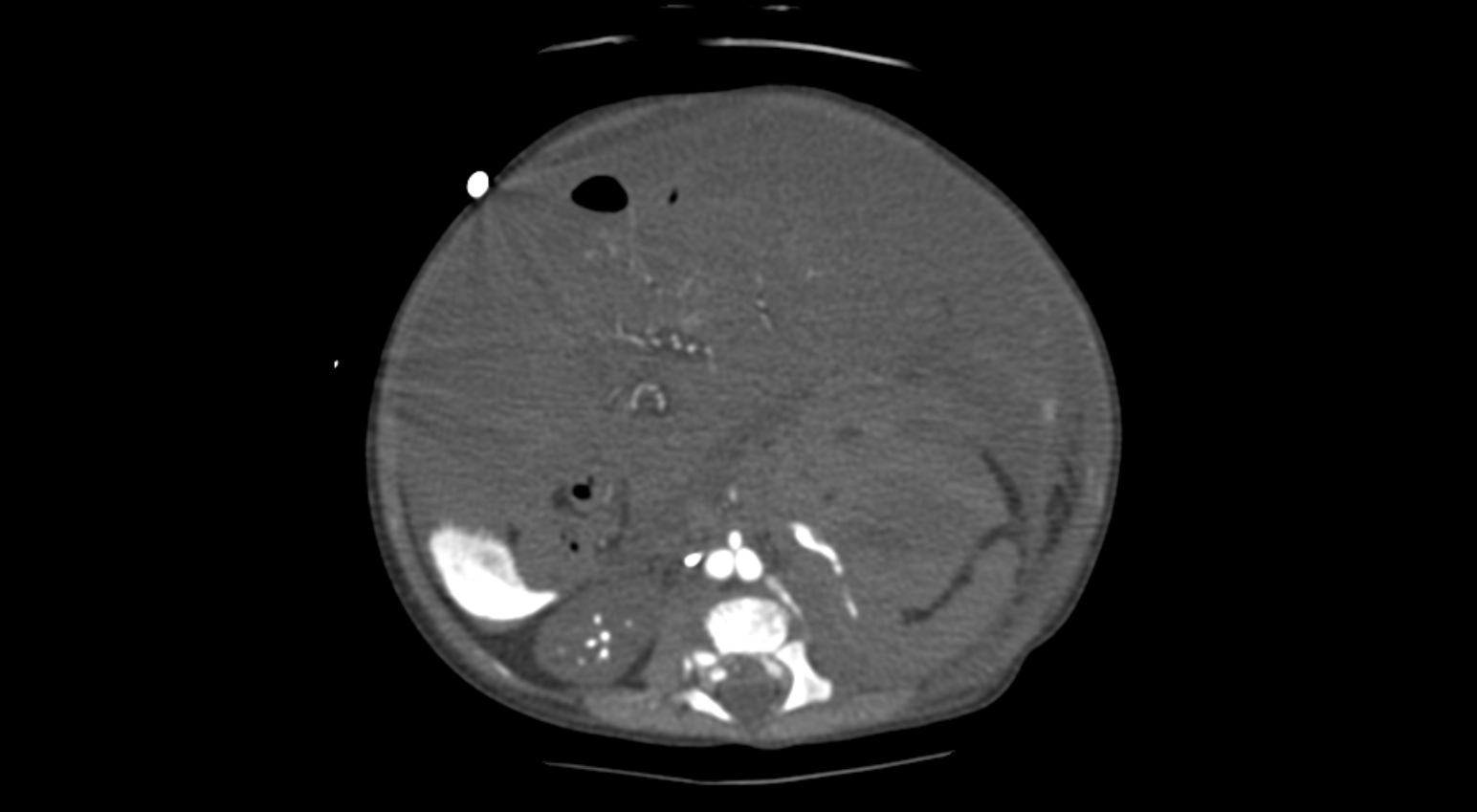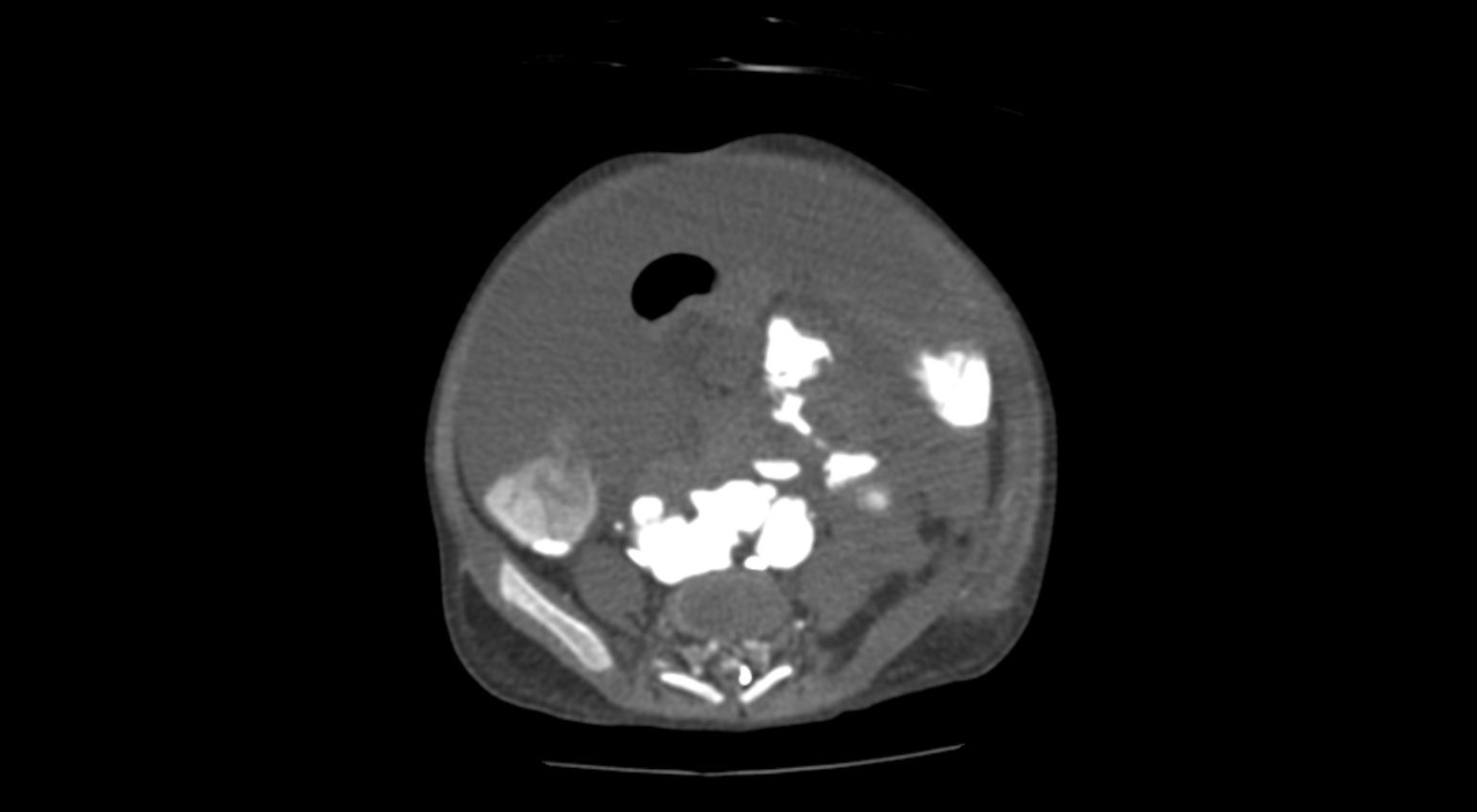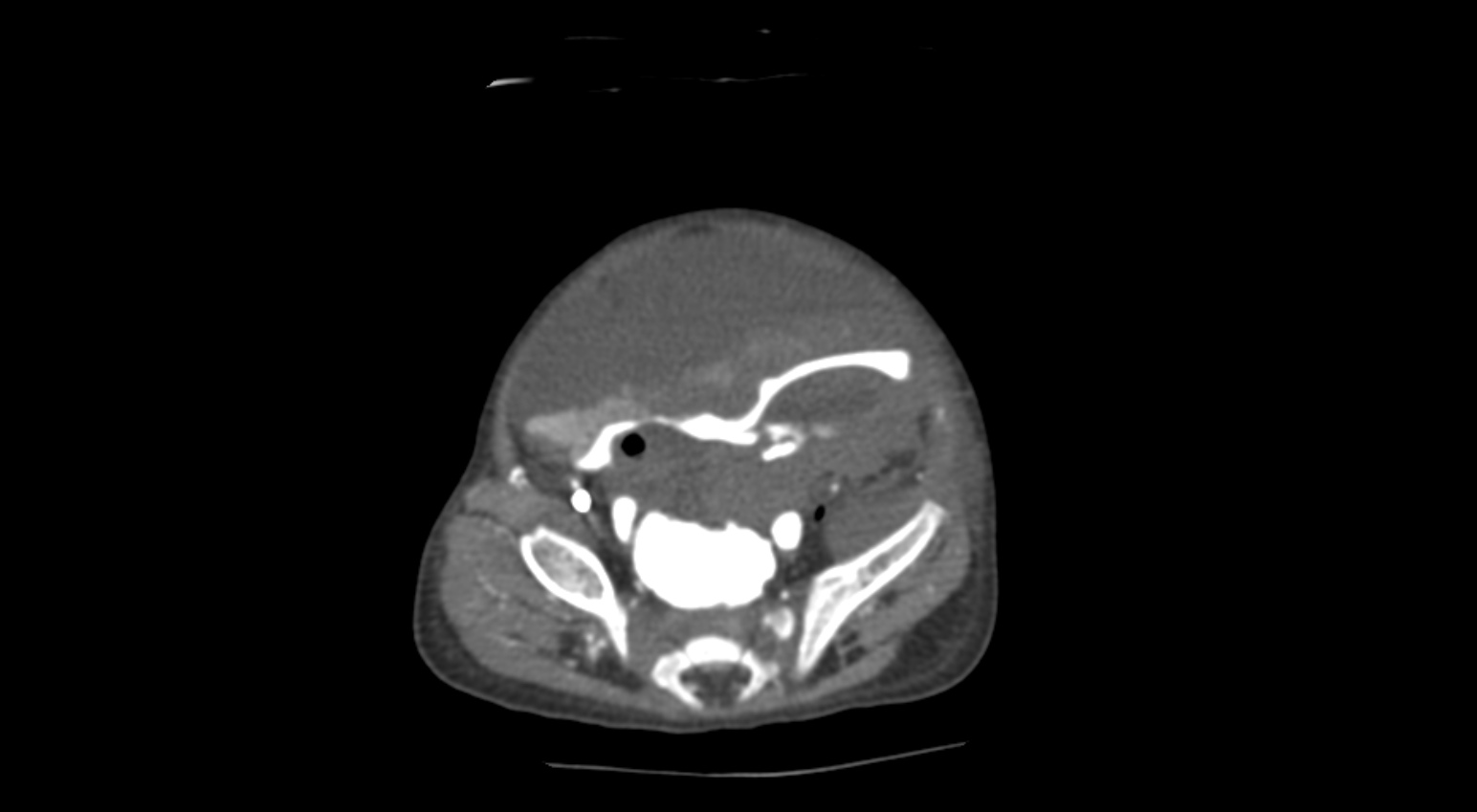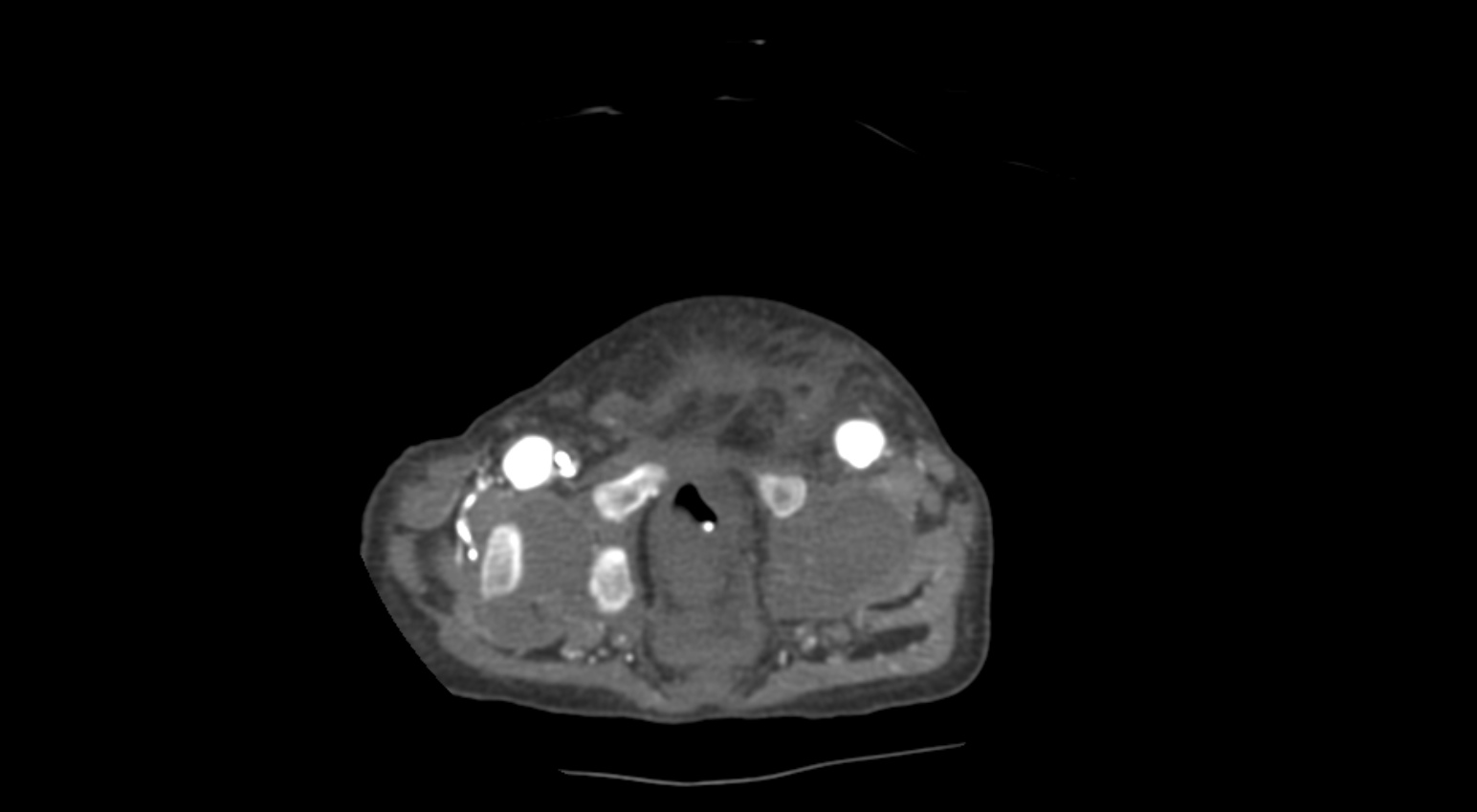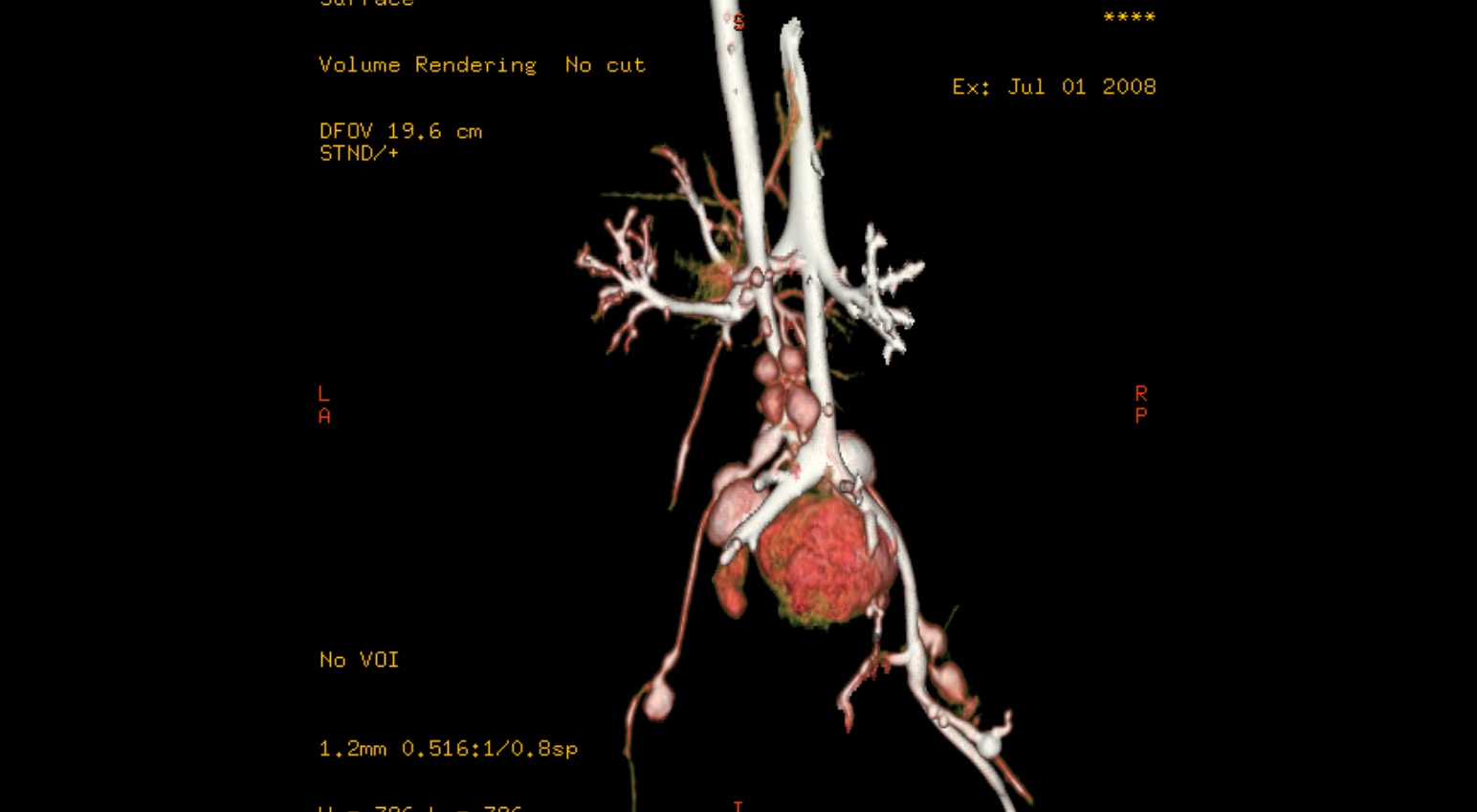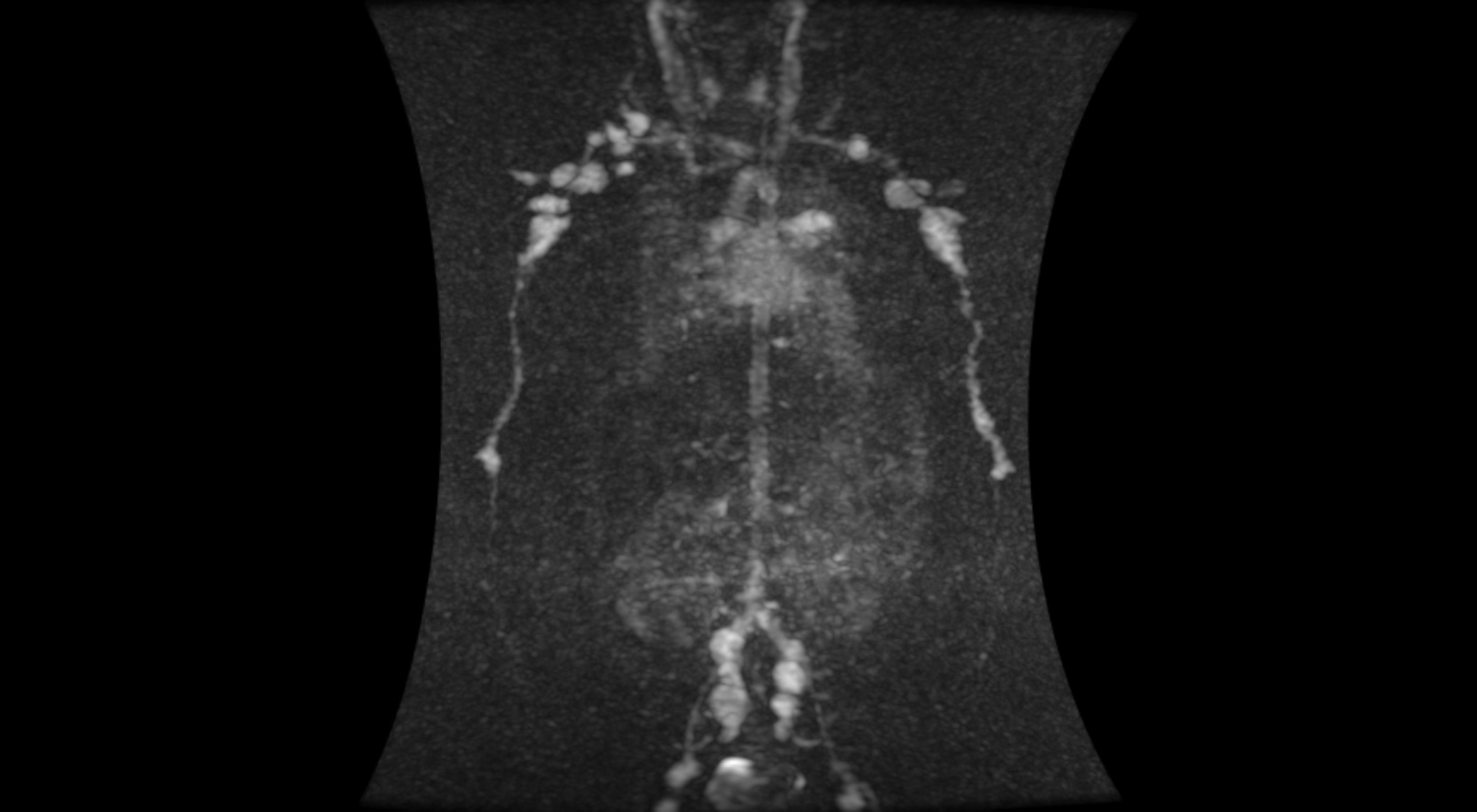History: 4 month old male with sudden onset hypotension
Solution: Kawasaki Syndrome, otherwise known as mucocutaneous lymph node syndrome is an acute febrile multisystem vasculitis of unknown cause that involves large, medium, and small vessels and has particular affinity for the coronary arteries. It is most frequently manifest at < 5 years of age with peak incidence at 1-2 years of age. It is associated with polyarthritis, aseptic meningitis, hepatitis, and pneumonitis and often has skin/mucosal manifestations including mucosal reddening (strawberry tongue), a maculopapular rash in the extensor surfaces, and erythema and desquamation on the soles and palms. Treatment is aspirin and gamma globulin and the mortality is less than 3%. This patient ruptured a retroperitoneal aneurysm with subsequent large volume hemorrhage for which they underwent emergent surgery, but the situation was unsurvivable.
